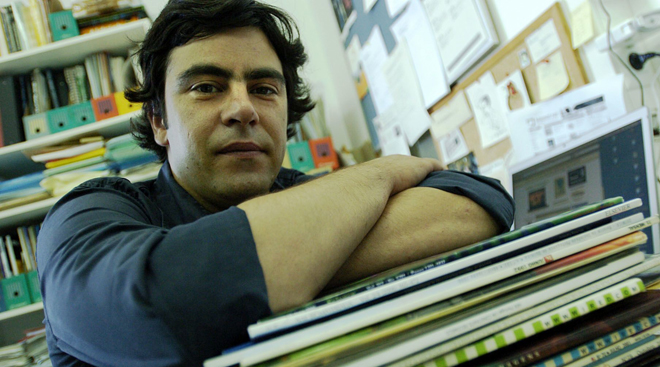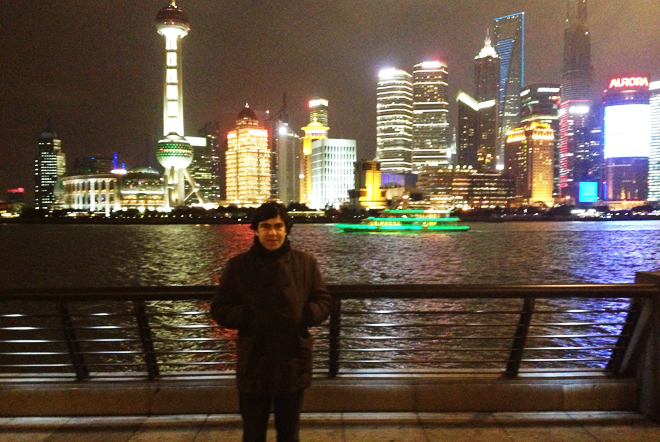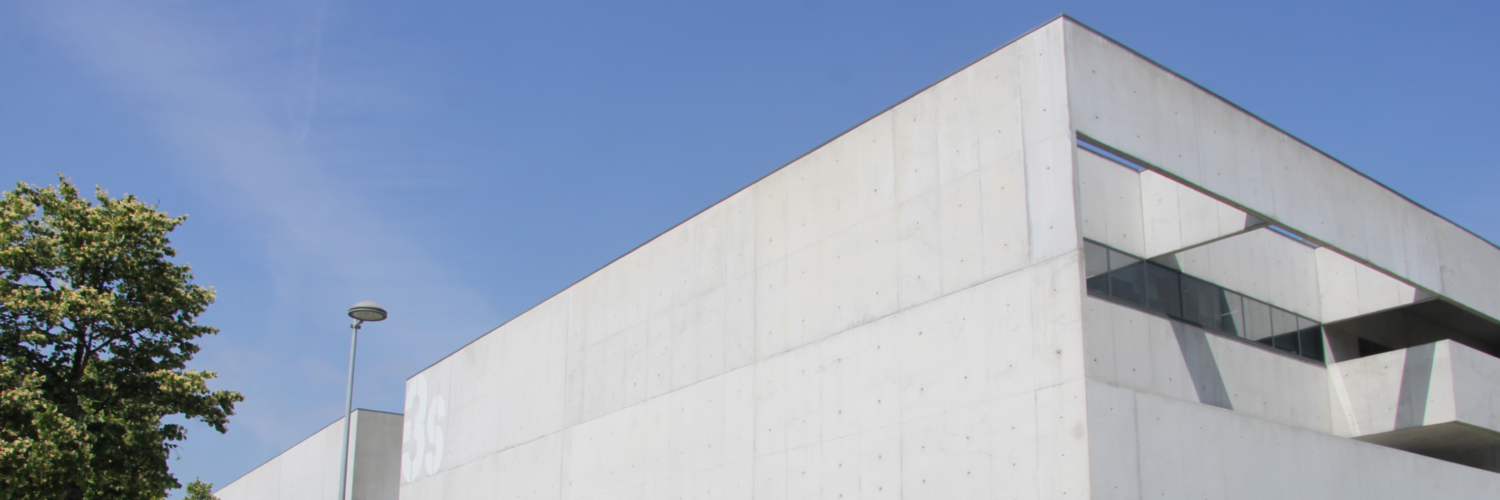BEYOND THE LAB COAT: Pedro Granja
“ (…)
Mas sou sempre eu, assente sobre os mesmos pés —
O mesmo sempre, graças ao céu e à terra
E aos meus olhos e ouvidos atentos
E à minha clara simplicidade de alma ... “
Alberto Caeiro, in "O Guardador de Rebanhos - Poema XXIX"
Simplicity. This is for sure one of the words that those who know Pedro Granja would use to describe him. Whenever you cross him on the halls of INEB you can be sure that he will always be kind and supportive to you, but his never-stopping spirit will also probably dare you with a new exciting idea or project.

Pedro Lopes Granja was born on March 11th 1970, in Porto, but part of his life was spent across the ocean. As an example: he did his high school studies in São Paulo, Brazil.
He then came back to Portugal to enroll in the Metallurgical Engineering course, which he concluded in 1993. During this period, between the 4th and 5th year (1992), he was about 4 months at the company Seipi, a manufacturer of titanium implants, in Milan, Italy. By this time his work was already related to the biomaterials field.
In the following year (1994) he enrolled on the Engineering Sciences PhD course and joined INEB, to carry out a thesis on biomaterials. He got his degree in 2001. During his PhD, Pedro had the chance to work in Bordeaux, France, where he spent 2 years. After the PhD, he also went for a post-doc program.
In 2004 he went back abroad once again and was a visiting scientist at the University of Michigan, in Ann Arbor, USA. More recently, in 2009, he was a visiting Professor at the University Paris 13, in Paris, France. After being in so many different places, in his own words: “all these experiences were fundamental for my work, but they were essentially an invaluable personal experience”.
Back at INEB, Pedro became the scientific coordinator of the Institute in 2012, and along his way he has been involved in countless international scientific activities, which can be further explored in his website - www.pedrogranja.net.
Main Challenge(s):
When you are so lucky as to enjoy your work I believe this is motivation enough. That’s how I feel about my work. Besides, in science we have always plenty of additional motivation from the bright people we meet and work with, the exiting new ideas that we come across, the new technologies and, of course, the thrill of discovery!
Now for instance I am extremely interested on the effect of the 3D environment on cell behavior. I have been working on this topic for more than a decade, exploring different aspects of cell behavior in three-dimensional structures. But just recently I started looking at the way the 3D itself, and not chemistry or biochemistry, can affect cells. This is my main scientific challenge at this moment, although, in my experience, it can change considerably over time.
An even bigger challenge is to take over the Scientific Coordination of INEB, especially after Mário Barbosa, who founded and so wisely led our institute to becoming so successful.
INEB in one word:
I can think of dozens of words to describe INEB. And I would probably give a different answer at different moments. It could easily be ”home” since I have been here for 20 out of my 44 years.
Now, I prefer to describe it with the word PLURALISM, that is extremely representative of our scientific multi- and transdisciplinarity, along with the fact of including people with different interests and backgrounds, from many different places and with different ages, that come together at this institution to build our very unique culture.
Beyond the lab coat...
I deeply enjoy spending time with my wife, either at home or walking around in the city. Traveling is another passion.
Taking care of my garden, watching movies and attending art exhibits are among what I frequently do in free time.
The Movie:
One movie that immediately pops out in my memory is: Blade Runner (Ridley Scott, 1982)
Funny enough it has a lot to do with our field, although it’s from 1982 and I saw it long before going to the university. I always use it in classes when talking about the social and ethical implications of replacing body parts. This movie goes to the point of challenging the very definition of being human. It was way ahead of its time, and probably is still ahead of ours.
The Book:
What I mostly enjoy in any art form is being surprised by the artist’s creativity. Be it a painting, a music or writing. That’s probably why some of my favorite art forms are contemporary, like electronic music. For that same reason I never feel tired of reading: The book of poems from Alberto Caeiro, a pseudonym of Fernando Pessoa.
It still surprises me!
The Trip:
Already so many favorites and still so many places to go!
That’s among the greatest advantages of being a scientist – you get to travel a lot and, more importantly, have friends all over the world.
I would highlight my first trip to China, a long time ago. Because it was so different it’s one of those trips that, when you’re there, you almost don’t believe it and, when you come back, you are almost sure you weren’t there.

If I wasn’t a scientist, I would be…
I feel I am a scientist by chance. Mário Barbosa was my Professor at the University. After graduating, I had to wait to finish the mandatory military service, before getting a job. I was very lucky when, at that time, Mário found me one day outside the University, and challenged me to start a PhD. Of course I very soon became enthusiastic about science. This is to say that I feel that, if I wasn’t a scientist, I could be anything!
And I like to think that I would have done my best to enjoy anything else the same way I enjoy being a scientist.


